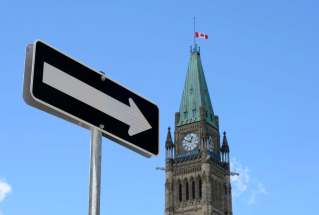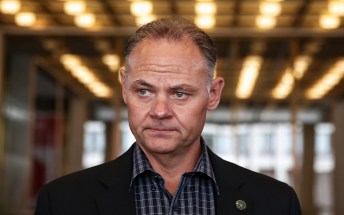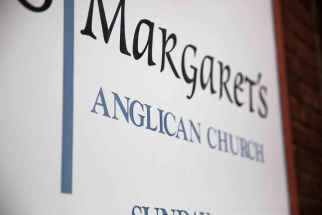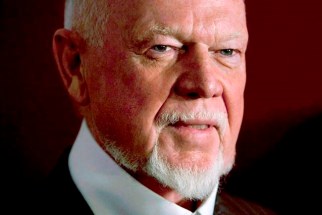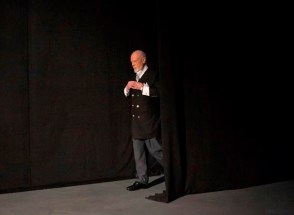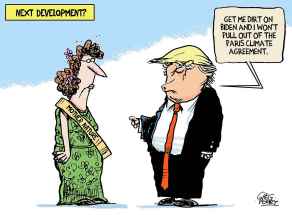‘Dire’ report projects near end of Anglican Church in Canada
Read this article for free:
or
Already have an account? Log in here »
To continue reading, please subscribe:
Monthly Digital Subscription
$0 for the first 4 weeks*
- Enjoy unlimited reading on winnipegfreepress.com
- Read the E-Edition, our digital replica newspaper
- Access News Break, our award-winning app
- Play interactive puzzles
*No charge for 4 weeks then price increases to the regular rate of $19.00 plus GST every four weeks. Offer available to new and qualified returning subscribers only. Cancel any time.
Monthly Digital Subscription
$4.75/week*
- Enjoy unlimited reading on winnipegfreepress.com
- Read the E-Edition, our digital replica newspaper
- Access News Break, our award-winning app
- Play interactive puzzles
*Billed as $19 plus GST every four weeks. Cancel any time.
To continue reading, please subscribe:
Add Free Press access to your Brandon Sun subscription for only an additional
$1 for the first 4 weeks*
*Your next subscription payment will increase by $1.00 and you will be charged $16.99 plus GST for four weeks. After four weeks, your payment will increase to $23.99 plus GST every four weeks.
Read unlimited articles for free today:
or
Already have an account? Log in here »
Hey there, time traveller!
This article was published 12/11/2019 (2219 days ago), so information in it may no longer be current.
By 2040, there may be no Anglican Church members left in Canada.
That’s the finding a new report commissioned by the Anglican Church of Canada and delivered to leaders at the Council of General Synod meeting last week in Mississauga, Ont.
The document by Rev. Neil Elliot, an Anglican priest in Trail, B.C., shows the church running out of members in 20 years at the current state of decline.
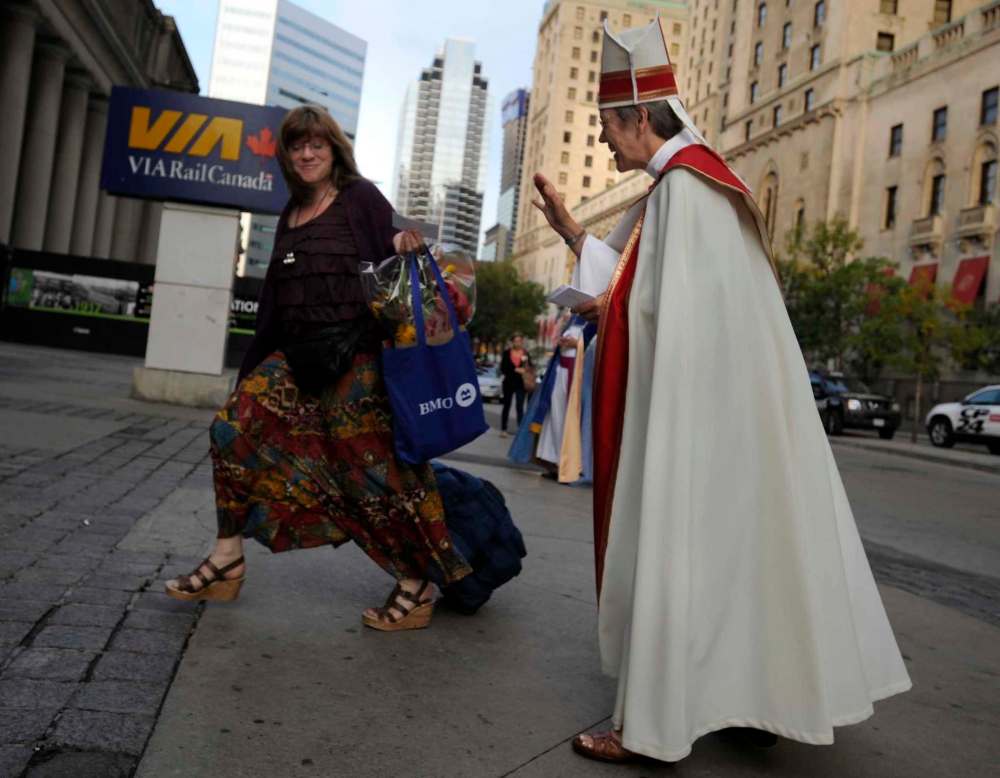
“Projections from our data indicate that there will be no members, attenders or givers in the Anglican Church of Canada by approximately 2040,” the report says.
The figures are based on church statistics from 1961 to 2001, subscriber data to the Anglican Journal (the church’s official publication) and data from Elliot’s own survey of the dioceses in 2017 (number of people on parish rolls, average Sunday attendance, regular identifiable givers).
“For five different methodologies to give the same result is a very, very powerful statistical confirmation which we really, really have to take seriously and we can’t dismiss lightly,” Elliot told church leaders last week.
In the report, he noted there were 1.3 million members in 1961, 641,845 in 2001, and 357,123 in 2017.

!function(e,i,n,s){var t=”InfogramEmbeds”,d=e.getElementsByTagName(“script”)[0];if(window[t]&&window[t].initialized)window[t].process&&window[t].process();else if(!e.getElementById(n)){var o=e.createElement(“script”);o.async=1,o.id=n,o.src=”https://e.infogram.com/js/dist/embed-loader-min.js”,d.parentNode.insertBefore(o,d)}}(document,0,”infogram-async”);
While some had hoped the decline had “bottomed out” in 2006, the last time a report about membership was prepared for the church, it is “demonstrably not the case… We need to plan for a church which is going to change substantially” in the future.
During the meeting, Archbishop Linda Nicholls, Primate of the Anglican Church of Canada, said while the news was a “wake-up call," she hoped members would focus more on the church’s calling to be a faithful witness in Canada, instead of being drawn into a “vortex of negativity” about the decline.
“We’re called to do and be God’s people in a particular place, for the purpose of sharing the good news of Jesus Christ, and the only question is: ‘How do we need to share it, so that it might be heard by those around us?’” she said.
“I think we’re being tested about perseverance, endurance, creativity in the coming years,” she said, noting “we do not face our challenges alone."
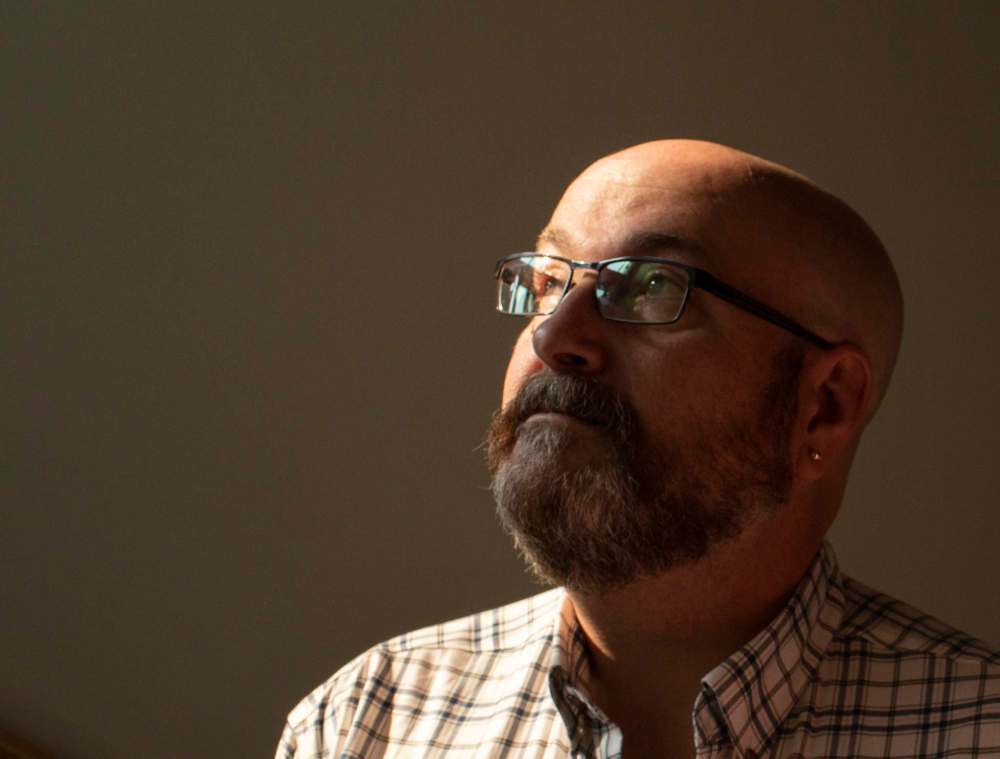
Geoff Woodcroft, Bishop of Rupert’s Land (which includes parts of Manitoba and northwestern Ontario) called the report “dire.”
“We need to take it very seriously,” he said.
According to the report, there has been an almost 3.5 per cent decline annual decline in attendance since 2001 and a 2.5 per cent decline in giving in the diocese.
While that’s a cause for concern, it’s not a “death knell for the church, Woodcroft said, as it can’t account for “the vitality of the ministry being done by Anglicans” across Canada.
Anglicans in Manitoba are responding to their communities and neighbourhoods, together with thriving churches such as St. Margaret’s and St. Benedict’s Table (both in Winnipeg), Woodcroft said, calling the efforts a “credit to those people and those communities.”
As for church leaders, they are “taking (the report) incredibly seriously,” he said.
“We’re always asking what we can do together better,” Woodcroft said, including more shared ministry and service with other denominations (already happening in Manitoba between Anglicans and members of the Evangelical Lutheran Church in Canada).
“It’s a challenging time, but also a hopeful time,” he said, adding Anglican Church will “not cease to exist if buildings close. The church is the body of Christ, not a building.”
faith@freepress.mb.ca
The Free Press is committed to covering faith in Manitoba. If you appreciate that coverage, help us do more! Your contribution of $10, $25 or more will allow us to deepen our reporting about faith in the province. Thanks! BECOME A FAITH JOURNALISM SUPPORTER

John Longhurst has been writing for Winnipeg's faith pages since 2003. He also writes for Religion News Service in the U.S., and blogs about the media, marketing and communications at Making the News.
Our newsroom depends on a growing audience of readers to power our journalism. If you are not a paid reader, please consider becoming a subscriber.
Our newsroom depends on its audience of readers to power our journalism. Thank you for your support.
The Free Press acknowledges the financial support it receives from members of the city’s faith community, which makes our coverage of religion possible.

